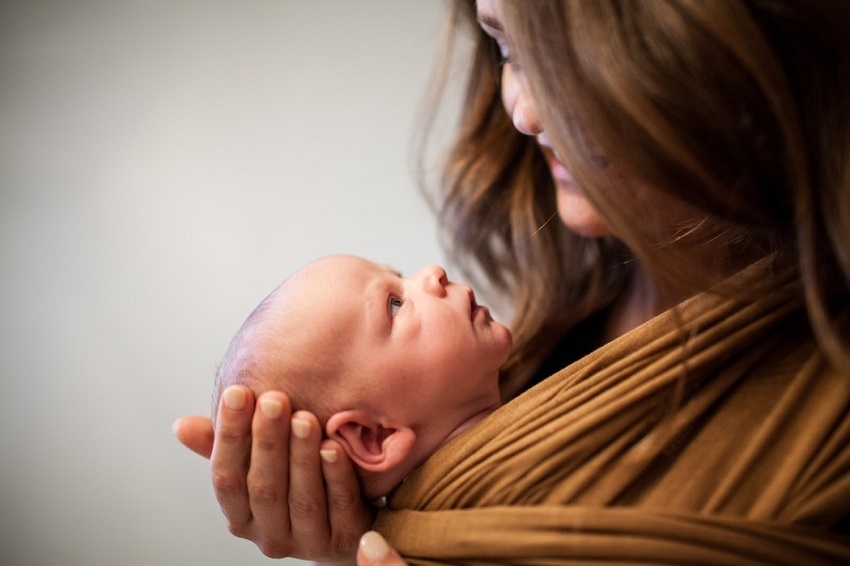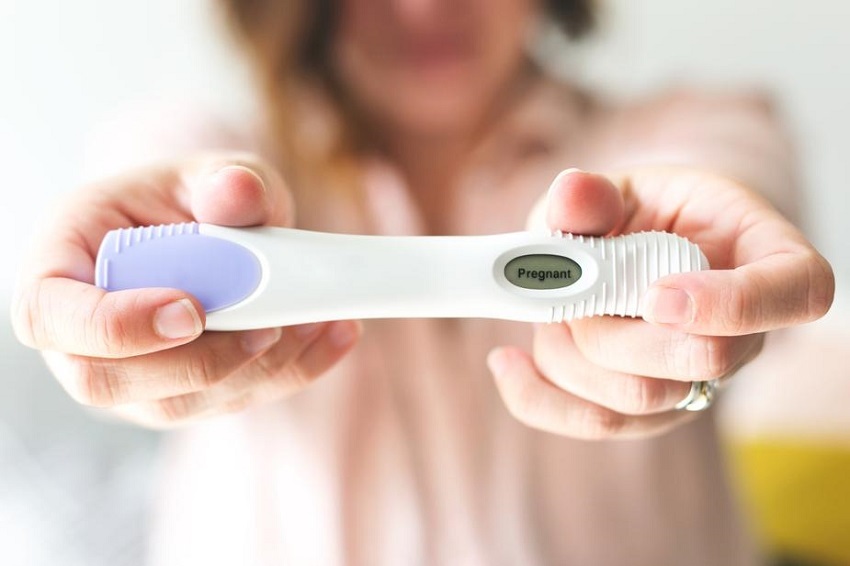Pregnant?

Pregnancy
Whether you are pregnant or are planning to get pregnant, you will want to give your baby a healthy start.
You need to have regular visits with your healthcare provider and they are very important for your baby and you. Some things are better avoided during pregnancy, such as smoking or drinking. Some medicines can also be a problem, even ones that a doctor prescribed. You will need to drink plenty of fluids and eat a healthy diet. In early pregnancy, you may get morning sickness, or nausea. You may also be tired and need more rest.
Your body will change as your baby grows during the nine months of your pregnancy. Don't hesitate to call your health care provider if something is bothering or worrying you.
During pregnancy, our bodies experience countless wonderful, often unexpected, changes. Many women have questions about how these changes might affect their daily routines and relationships. Find out how to balance your life while maintaining good physical and mental health.

"A baby is something you carry inside you for nine months, in your arms for three years and in your heart till the day you die."
— Mary Mason
Compiled by Bruce Abramson

What is the definition of being pregnant?
Medical Dictionaries
This usage is seen in most medical dictionaries (examined at the library of the World Health Organization). For instance:
Melloni's Illustrated Medical Dictionary (The Williams and Wilkins Company, Baltimore, 1979):
- "pregnancy. The period of time between conception and birth of the child; ...
- also called gestation." Id., p. 387.
- "pregnant. Carrying a developing offspring with the body; .... Id., p. 387.
- "conception. ... 2. The fertilization of an ovum or the act of becoming pregnant." Id., p. 106.
(Note: in all of the examples in this memo, the boldfacing is in the original, and the ellipses - the three dots - show where some text has been cut out.)
Mosby's Medical, Nursing, & Allied Health Dictionary (6th Ed., Mosby, St. Louis, London, Philadelphia, Sydney, Toronto, 2002):
- "pregnancy ... the gestational process, comprising the growth and development within a woman of a new individual from conception through the embryonic and fetal periods to birth. ...." Id., p. 1389.
- "conception ... 1. the beginning of pregnancy, usually taken to be the instant that a spermatozoon enters an ovum and forms a viable zygote. 2. the act or process of fertilization." Id., p. 409.
Stedman's Medical Dictionary (26th Edition, Williams & Wilkins, Baltimore, Philadelphia, Hong Kong, London, Munich, Sydney, Tokyo, 1995):
- "pregnancy .... The condition of a female after conception until the birth of the baby. SYN ... gestation, ...." Id., p. 1420.
- "conception .... 3. The act of conceiving, or becoming pregnant; fertilization of the oocyte (ovum) by a spermatozoon to form a viable zygote." Id., p. 377.
Churchill's Illustrated Medical Dictionary (Churchill Livingstone, New York, Edinburg, London, Melbourne, 1989):
- "pregnancy ... The state of a female from the time of conception until delivery of the products of conception." Id., p. 1507.
- "conception ... The act or condition of becoming pregnant; the initiation of pregnancy." Id., p. 406.
- conceptus ... [L (from concipere to conceive) conception, the result of conception] The total products of conception, not just the embryo or fetus but everything derived from the fertilized egg, ...." Id., p. 406.
International Dictionary of Medicine (John Wiley & Sons, New York, Chichester, Brisbane, Toronto, Singapore, 1986):
- "pregnancy ... The state of a female from the time of conception until delivery of the products of conception." Id., Vol. III, p. 2284.
- "conception ... The act or condition of becoming pregnant; the initiation of pregnancy." Id.., Vol. I, p. 614.
(Note: the last two dictionaries have identical definitions, and they are not fully complete, that is to say, the definitions are circular: there is no freestanding definition of "conception." This is not a fatal defect, however, since "conception" is nearly always defined to equate with fertilization.)
Miller-Keane Encyclopedia & Dictionary of Medicine, Nursing, & Allied Health (5th Ed., W.B. Saunders Company, Harcourt Brace Jovanovich Inc., Philadelphia, London, Toronto, Montreal, Sydney, Tokyo, 1992):
- "pregnancy ... the condition of having a developing embryo of fetus in the body, after union of an ovum and a spermatozoon. ...The average pregnancy lasts about 280 days, or 40 weeks, from the date of conception to childbirth." Id., p. 1204.
- "embryo ... a new organism in the earliest stage of development; the human young from the time of fertilization of the ovum until the beginning of the third month." Id., p. 484.
- "fertilization ... in human reproduction, the process by which the male's sperm unites with the female's ovum. By this event, also called conception, a new life is created ...." Id., p. 547.
- "conception ... the onset of pregnancy, marked by implantation of the blastocyst; the formation of a viable zygote." Id., p. 341 (underlining added.)
(Note the lack of precision in the definition of "conception", and the potential for confusion, that is caused by the addition of the underlined clause: conception -- and thus pregnancy -- happens upon fertilization, not later, at the time the fertilized ovum (the zygote or blastocyst) is implanted in the uterus (or some other, and irregular, part of the body.)
General Dictionaries
The medical definition described above can also be found in ordinary dictionaries. For instance:
The American Heritage Dictionary of the English Language (3rd Ed., Houghton Mifflin Co., Boston, New York, London, 1992):
- "pregnant ... Carrying developing offspring within the body." Id., at p. 1428 (underlining added).
The Random House Dictionary of the English Language (2nd Ed., Random House, New York, 1987):
- "pregnant ... having a child or other offspring developing in the body; with child or young, as a woman or female mammal." Id., p. 1525 (underlining added).